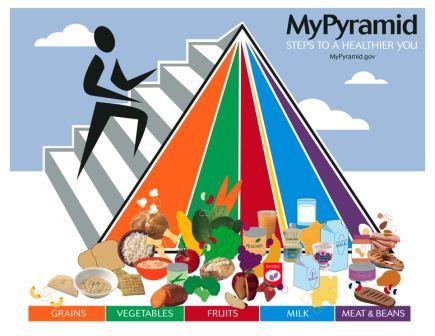Study: Dietary interventions can help children with ADHD (especially with proper monitoring and adjustment)
 Are dietary interventions effective for treating ADHD? This has been a controversial question over the years with strong proponents on both sides of the issue. For many parents and professionals, trying to parse through the different claims about the impact of diet on ADHD has been challenging and confusing.
Are dietary interventions effective for treating ADHD? This has been a controversial question over the years with strong proponents on both sides of the issue. For many parents and professionals, trying to parse through the different claims about the impact of diet on ADHD has been challenging and confusing.
At this point, substantial research on how dietary interventions impact ADHD has accumulated and several meta-analyses of this work have been published. In a meta-analysis, the researcher begins by trying to identify all relevant studies of an issue that meet certain predefined criteria, e.g., only studies that are true randomized-controlled trials are included. Results from studies meeting inclusion criteria are analyzed collectively, so that findings across multiple studies are synthesized into an overall result.
The benefits of this approach are that findings are based on many more participants than from a single study and typically include more diverse populations as a result. Integrating data across studies can also help smooth out the strengths and limitations of individual studies. Because of this, findings that emerge from a well-conducted meta-analysis may be more reliable than would be the case for any single study. Recently, a review of several meta-analyses of dietary interventions for ADHD was published [Research review: The role of diet in the treatment of attention-deficit/
Types of dietary interventions
Three types of dietary interventions were reviewed — Restricted Elimination Diets (RED), Artificial food coloring exclusion (AFCE), and supplementation with free fatty acids (SFFA). Although other types of supplements beyond free fatty acids have been investigated, the authors felt there was not sufficient research on any single approach to include in their summary.
A brief description of these different interventions is provided below.
1. Restricted elimination diets (RED) — There are 2 different approaches to implementing this diet. In one approach, the child is placed on an extremely restricted diet, e.g., rice, turkey, a range of vegetables (lettuce, carrots, cauliflower, cabbage, beets), pears and water; this is sometimes referred to as the Few Food Diet. When a reduction in ADHD behaviors results — this would generally occur within 2–3 weeks if the diet is going to have a positive effect — new foods can be added back one at a time to see if they are well-tolerated or lead to an increase in problem behaviors. Alternatively, particular foods that are suspected to exacerbate a child’s symptoms may be removed one at a time to see if the child’s behavior improves.
2. Artificial food coloring exclusion (AFCE)- As the title indicates, this involves efforts to remove all artificial food colorings from a child’s diet, e.g.,Yellow #6, Yellow #5, Sodium Benzoate, Blue #2, etc., and observing whether this is associated with a reduction in ADHD behaviors. Carefully conducted trials have demonstrated that AFC’s – in amounts children could typically consume – can increase ADHD symptoms in many children.
3. Essential fatty acid supplementation — Certain fatty acids, e.g., Omega 3 and Omega 6, promote neural functioning. These fatty acids are called essential because they are not synthesized in the body and must be ingested. Children with ADHD may have lower levels of essential fatty acids relative to peers and several studies have demonstrated a link between low levels of EFAs and the severity of ADHD symptoms. Studies investigating the benefits of fatty acid supplementation for youth with ADHD raise fatty acid levels by administering capsules containing the fatty acids or sometimes by introducing diets rich in fish products.
Are these interventions effective?
RED — Three different meta-analyses examining the impact of RED on children with ADHD reported significant positive effects. The magnitude of this effect varied considerably across the different studies. At this point, I believe the most reasonable conclusion to be drawn from available data is that restricted elimination diets, if implemented properly, have a significant effect that is likely to be in the small to moderate range. An average effect in the small to moderate range reflects the fact that some children are likely to show substantial benefits while many others may show no benefits at all.
AFCE — Small but significant effects of eliminating AFC’s from children’s diet have been reported. When studies have been restricted to children with diagnosed ADHD, significant and slightly larger benefts are reported. As with RED, a reasonable conclusion at this time is that, on average, children with ADHD will derive modest benefits when AFCs are removed from their diet. Some children may show large reductions in ADHD symptoms while others may show no discernible reductions at all.
Fatty acid supplementation — Results from multiple meta-analyses converge on their being a modest but significant benefit of fatty acid supplementation on ADHD symptoms. One complicating factor is that a wide range of combination of different fatty acids have been tested, making it difficult to derive an average expected benefit from any specific combination or dosages. As with RED and AFCE, some children are likely to display substantial benefits from this approach while for others, the impact on ADHD symptoms will be minimal or non-existent. Even in these cases, however, there are general health benefits that may accrue from fatty acid supplementation.
Limitations of available studies
Although the conclusions reached above are generally well supported by available data, limitations to the studies they are based on should be noted. First, some studies include children with ADHD who have been selected based on suspected food sensitivities, rather than a general population of ADHD youth. Results of dietary interventions would be expected to be stronger with this subgroup of ADHD youth; as a result, the impact of such interventions on the general population of youth with ADHD may be somewhat overestimated.
Outcome measures have generally been restricted to parent and teacher behavior rating scales; keeping such raters blind in these studies is challenging given their role in administering the diet. More objective assessments, e.g., computerized tests of attention, ratings made by observers who are fully blind to treatment condition, would be important additions to subsequent studies.
Another important issue is that the outcomes examined are largely restricted to ADHD behaviors. Examining other kinds of behaviors, and academic functioning in particular, would enable more fully informed assessments about the benefits of dietary interventions to be made.
One final issue to note is that, to my knowledge, studies combining different dietary approaches have not been conducted. It is possible that elimination diets combined with fatty acid supplementation would potentially have additive effects that would produce larger benefits on average. This seems like an important possibility to explore.
How should these findings be used to guide intervention?
Existing evidence points towards modest but statistically significant benefits of each dietary intervention on ADHD. As indicated above, modest average benefits can obscure the fact that some children show substantial gains. If that happens to be your child, the fact that most children may not realize large benefits would be less relevant.
Are dietary interventions something that parents should try and that professionals should recommend? In thinking about this, several issues are important to consider. First, the easiest of the 3 dietary interventions to implement would be fatty acid supplementation. This does not requiring restricting children’s food intake in any specific way, can have general health benefits regardless of how it impacts ADHD behaviors, and places much more limited demands on children and parents. When known food allergies/sensitivities are not present, this approach seems as likely to be helpful as restrictive diets that are more difficult to implement. It thus seems like a reasonable initial alternative.
It is important to recognize that restricted elimination diets can be difficult to implement and sustain — efforts to significantly limit the foods a child eats may lead to conflicts that create important problems in their own right. Unless food allergies are present, a diet restricting only AFCs may be a better choice as this would be easier to implement than a few foods diet. However, given the ubiquitous nature of artificial food colorings and dyes, this can also be challenging.
Introducing restricted diets in ways that focus on securing the cooperation and agreement of the child is an important goal. Realistically, maintaining a child on a restricted diet over long periods would be virtually impossible without such cooperation and sustaining a child’s cooperation over time is likely to prove challenging. Enlisting the help of a professional with this aspect of the intervention should certainly be considered.
Although parents might try to implement such diets on their own, dietary interventions should be carried out under the supervision of a nutritionist or other professional who is experienced in these approaches. In particular, restricted elimination diets, e.g., few foods diet, should be overseen by a properly qualified professional to avoid nutritional deficiency. Such a professional should also be able to assist in identifying possible food allergies/sensitivities that would both increase the chances of a positive outcome and help determine which foods are most important to avoid.
Because parents initiating dietary intervention may have strong expectations of benefit, and the placebo effect may also be operating, there should be a systematic plan in place to monitor children’s response. Ideally, behavior ratings would be obtained weekly from parents and teachers that would include assessments of ADHD symptoms, other behavior problems, and the quantity and quality of school work completed. If the teacher can be kept unaware of the intervention, so much the better as this would remove a potential source of bias in his/her ratings.
Obtaining these ratings should begin several weeks before starting treatment so that a reliable baseline can be established; once the intervention begins they should be collected weekly. Review of these ratings regularly by the professional overseeing the treatment is the best way to learn whether things really are getting better, and even if they are, what problems are persisting that need to be addressed via other means. If the diet — or fatty acid supplementation — has been carefully followed for at least 4 weeks and no reliable benefits are discerned, it would be time to consider other treatments. This type of monitoring approach is not specific to dietary interventions but is an important component of any treatment for ADHD.
One uncomplicated and sensible intervention that all parents can implement is making sure their child eats a good breakfast that has adequate amounts of protein. Research has shown that this can play an important role in helping all children — not just those with ADHD — maintain better attention levels across the morning.
 – Dr. David Rabiner is a child clinical psychologist and Director of Undergraduate Studies in the Department of Psychology and Neuroscience at Duke University. He publishes the Attention Research Update and is teaching the upcoming online course How to Navigate Conventional and Complementary ADHD Treatments for Healthy Brain Development (May 2015; registration open).
– Dr. David Rabiner is a child clinical psychologist and Director of Undergraduate Studies in the Department of Psychology and Neuroscience at Duke University. He publishes the Attention Research Update and is teaching the upcoming online course How to Navigate Conventional and Complementary ADHD Treatments for Healthy Brain Development (May 2015; registration open).
Learn more:


